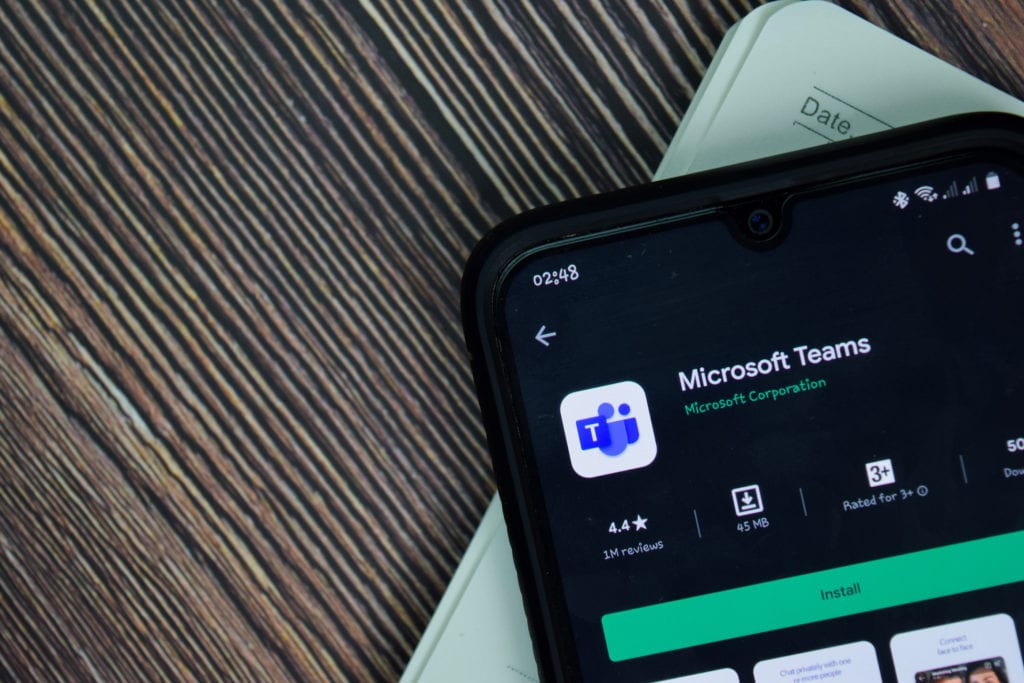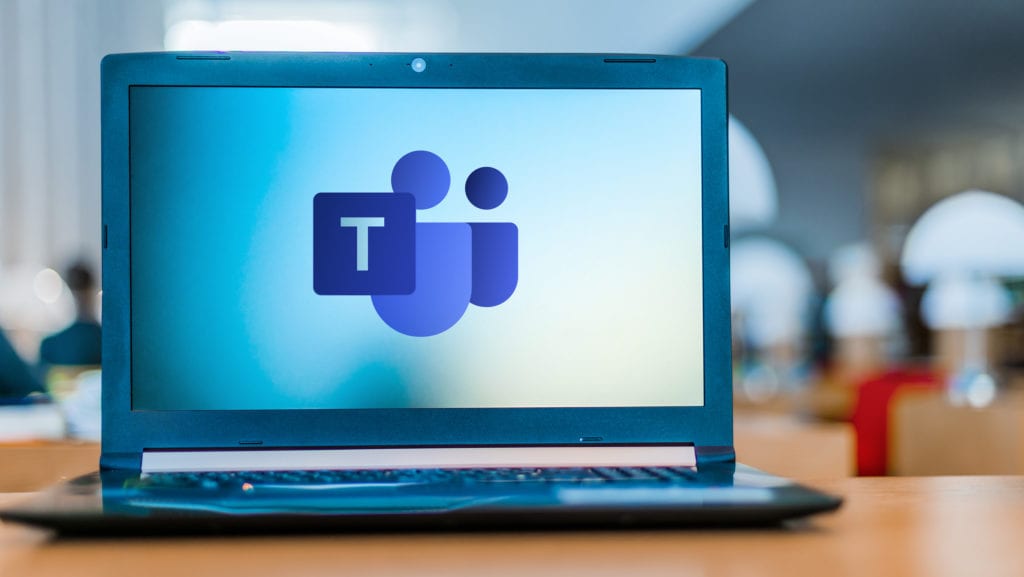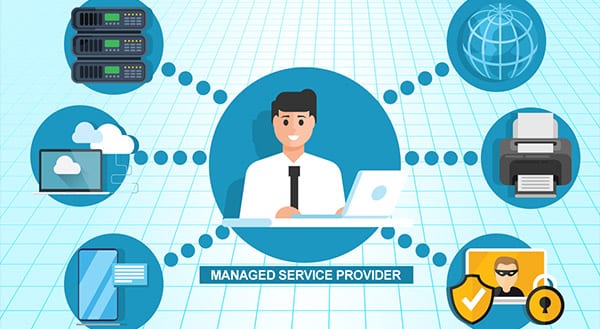
The COVID-19 pandemic has changed how most businesses utilize video. It’s gone from a convenience to a necessity for staying connected with the world. [Read more…]

The COVID-19 pandemic has changed how most businesses utilize video. It’s gone from a convenience to a necessity for staying connected with the world. [Read more…]

Data breach investigations have revealed a new shift in the hacking landscape, criminals are going after your passwords with a vengeance. [Read more…]

You’re connected to cloud storage and file sharing, so you should be good to go having all your files backed up, right? Wrong! [Read more…]

Every business needs to have a business continuity and disaster recovery plan in place, or else risk losing everything in the event of an unexpected crisis. [Read more…]

Business communications have completely evolved over the last decade or so. Landlines are now becoming obsolete and communicating has gone beyond just phone and email. [Read more…]

Cloud applications have gone from being a productive way to provide anywhere access to becoming a business necessity in a world where remote workers are vital to keeping operations going when business-as-usual is interrupted.
Cloud services like Microsoft 365, G Suite, and others are now where many companies station their business workflows. This means their data is also more often stored in the cloud than in on-premises equipment.
Hackers have taken notice, and the latest Verizon Data Breach Investigations Report shows that they are going after those cloud application passwords with a vengeance.
Password dumpers have now become the #1 form of malware used in data breaches. In phishing attacks, login credentials have become the information most sought after.
How can you use the cloud effectively to keep your business data available to all your workers, no matter location, and ensure it is safe? We have several tips below for good cloud security.
Safe use of cloud solutions requires a strategic approach. You can’t just rely on the cloud provider to keep your data safe, especially when hackers are trying their hardest to steal legitimate user credentials that will give them an all-access pass to your account.
Here are some good cloud security practices to keep your business data protected.
Compromised passwords are responsible for 81% of hacking related data breaches.
Users often adopt bad password habits because of all the different passwords they have to use. These risky habits include:
It’s important to set up cloud platforms, such as Microsoft 365, to require the use of strong passwords and reject passwords that don’t meet certain criteria. This should include length requirements and the need to use at least one number and one symbol.
Adding a second factor to your logins using MFA can stop 99.9% of attempted account hacks, greatly increasing the security of your cloud accounts.
MFA simply involves having a secondary step added to login where the user is sent a time-sensitive code to a pre-approved device. That code then has to be entered to complete the login. This step keeps hackers out even if they’ve compromised the password.
Hackers may not make themselves immediately known, stealing data “under the radar” after they’ve managed to get into your cloud account. One way to detect this type of compromise is to monitor cloud account access.
Tools like cloud application security brokers and endpoint device managers can help you keep tabs on access patterns to your cloud solutions. This allows you to catch any suspicious activity, like large file downloads, when they happen.
Another way to monitor who is logging into your cloud accounts is to turn on account alerts. Many of the major cloud services will have these available in the security settings.
Account alerts can let you know things like:
Some businesses will leave old employee accounts open for a while after the employee has left. They want to make sure they don’t lose any data or may just get busy and keep putting off closing it until “later.”
Leaving old accounts open leaves your account at risk. Here are the steps you should take once an employee leaves to secure your account and data:
Many users stay logged into their cloud accounts because it’s easier than continually logging in and out. They also want to make sure they receive important account alerts.
But when a mobile device that’s logged into your company cloud accounts is lost or stolen, that means a stranger has a free pass to get in and do whatever they like.
Endpoint device protection allows you to manage all your endpoints remotely (mobile devices and computers). One of the important safeguards this provides your accounts, is that you can revoke access remotely at anytime from a device. Devices can also be locked and wiped remotely, reducing the risk that a thief will be able to access your company accounts and information.
With businesses so reliant on the cloud, it’s vital that you pay attention to cloud security. ProdigyTeks can help your Chicago business put the safeguards in place that you need.
Schedule a free phone consultation today! Call 312-600-8357 or reach us online.

One of the lasting impacts of the COVID-19 pandemic is going to be more remote workers. Most companies were forced into using remote teams during state lockdowns, and even post-pandemic, they plan to keep more workers telecommuting from home. [Read more…]

In today’s hybrid environment of both remote and onsite employees, small businesses in Chicago and the rest of the country have had to come up with ways to keep everyone connected and on the same page. [Read more…]
ProdigyTeks Ranked Among Illinois Most Elite 501 Managed Service Providers
Annual MSP 501 Identifies Best-in-Class Global MSP Businesses & Leading Trends in Managed Services
CHICAGO – August 3, 2020: ProdigyTeks has been named as one of the world’s premier managed service providers and one of the top MSPs in Illinois on the prestigious 2020 annual Channel Futures MSP 501 rankings.
For the 13th year, MSPs from around the globe completed an exhaustive survey and application this spring to self-report product offerings, annual total and recurring revenues, profits, revenue mix, growth opportunities, and company and customer demographic information. Applicants are ranked on a unique methodology that weights revenue figures according to long-term health and viability; commitment to recurring revenue; and operational efficiency.
Channel Futures is pleased to name ProdigyTeks to the 2020 MSP 501.
“It is a true honor to be recognized as one of the top 10 among my peers in the 501 MSP rankings. This designation further demonstrates the devotion of our team, who are committed to continued growth. We look forward to new opportunities to advance and move the digital landscape forward,” said Paco Lebron, CEO, ProdigyTeks.
In the 13 years since its inception, the MSP 501 has evolved from a competitive ranking list into a vibrant group of service providers, vendors, distributors, consultants and industry analysts working together to define the growing managed service opportunity.
“These benchmarks are what local businesses should examine when choosing a managed service provider with the experience, skill set, business knowledge and defined strategy to help them succeed in this fast-changing digital landscape,” says Kris Blackmon, Senior Content Director, Channel Partners and Channel Futures. “In all of the managed service providers that IL has to offer, ProdigyTeks stands as a shining example of excellence.”
Ten MSP 501 special award winners will be recognized at the MSP 501 Awards Gala at Channel Partners Virtual: Digital Events for the Modern Channel on September 8 – 10. Nominations for these special awards, including Digital Innovator of the Year, Executive of the Year and the Newcomer Award, were included in the MSP 501 application, and all candidates were encouraged to submit for them.
The data collected by the annual MSP 501 program drives Channel Partners’s and Channel Futures’s market intelligence insights, creating robust data sets and data-based trend reports that support our editorial coverage, event programming, community and networking strategies and educational offerings. It serves as a lynchpin to dozens of programs and initiatives.
The complete 2020 MSP 501 list is available at Channel Futures.
Background
The 2020 MSP 501 list is based on data collected by Channel Futures and its sister site, Channel Partners. Data was collected online from Mar. 1 through June 30, 2020. The MSP 501 list recognizes top managed service providers based on metrics including recurring revenue, profit margin and other factors.
About ProdigyTeks
Founded in 2013, ProdigyTeks is committed to empowering Chicago’s underserved small businesses by providing quality, convenient and friendly IT support. ProdigyTeks takes pride in their innovative approach and excellent service experience by providing a personal touch with every customer interaction. ProdigyTeks is a Chicago-based Minority Business Enterprise.
MEDIA CONTACT:
Marketing Department
About Informa Tech
Channel Futures, Channel Partners Online, Channel Partners Conference & Expo and Channel Partners Evolution are part of Informa Tech, a market-leading B2B information provider with depth and specialization in the Information and Communications (ICT) Technology sector. We help drive the future by inspiring the Technology community to design, build and run a better digital world through our market-leading research, media, training and event brands. Every year, we welcome 7,400+ subscribers to our research, more than 3.8 million unique visitors a month to our digital communities, 18,200+ students to our training programs and 225,000 delegates to our events.
MEDIA CONTACT:
Allison Francis
Editor, Channel Futures & Channel Partners
Editor, MSP 501

Technology is the lifeblood of business today, and you likely have a lot of it. But you may have accumulated software and hardware as you grew. Now, you have a hodgepodge of technologies never designed to work together. Consolidation can help.
Large corporations can afford an in-house IT team to keep track of all the hardware and software, but small- to medium-sized businesses often need help. Managing computers and mobile devices, and telephony print and fax systems can be overwhelming. Then, there’s all the software you need to secure, not to mention setting up data recovery in case of a disaster or emergency.
Consolidating your technology offers several benefits to companies of all sizes. A managed service provider can help.
#1 Increased Efficiency
If there’s a problem with your printers, phones, or Internet connection, you call your provider. When many vendors offer each of these services, you make several calls, which means waiting on the phone with a printer tech, phone company, or internet service provider (ISP).
When you connect with customer support, they can address only issues in one area of concern. The ISP isn’t going to know anything about your phone service, and the phone company knows zilch about printers. This disjointedness can waste a lot of time.
With an MSP, you need to make one call only. The support person will know and understand your entire system. They offer input based on how different technology interacts.
#2 Cost Savings
Lacking a holistic view of your technology and its interactions, you can end up wasting money. You might invest in a new feature for voice over IP, duplicating a capability you already have online.
Consolidating your technology with a single provider can also streamline costs. The first thing an MSP will do is to map out how your technology works together. Armed with an understanding of business needs and goals, they’ll make recommendations. You may be able to cut back on services in one area with a simple upgrade in another. Perhaps you’re paying for software licenses you no longer need. Plus, the MSP identifies opportunities for cost savings gained from bundling services.
The MSP typically charges a monthly, consolidated fee. Instead of managing several bills for every technology, you pay a single, consistent fee, which also makes budgeting much easier.
#3 Business Agility
If 2020 has taught us anything, it’s that business needs to be nimble. Yet your ability to react can be slower working with many different vendors. Simplifying your processes can streamline your response times.
An MSP will take a proactive approach to oversee your technology needs. They want you to avoid disruptions in the first place. Partner with an MSP to keep technology current, security up to date, and systems upgraded. This frees up what IT staff you have on-site to do more business- and revenue-generating work.
#4 Supportive Partner
Individual vendors focus on selling you their particular services or systems. The overall interplay of your technology isn’t their primary concern. Yet ensuring all your technology interacts effectively and efficiently is what the MSP does best.
Working with an MSP you gain a business partner that cares about your success. The MSP’s job is to determine whether:
An MSP offers a single point of contact. That contact will understand your entire setup and how it works together. The MSP will help you make better purchasing decisions. Plus, as a true business partner, an MSP supports your agility and success. Find out more about what we can do for you today!
